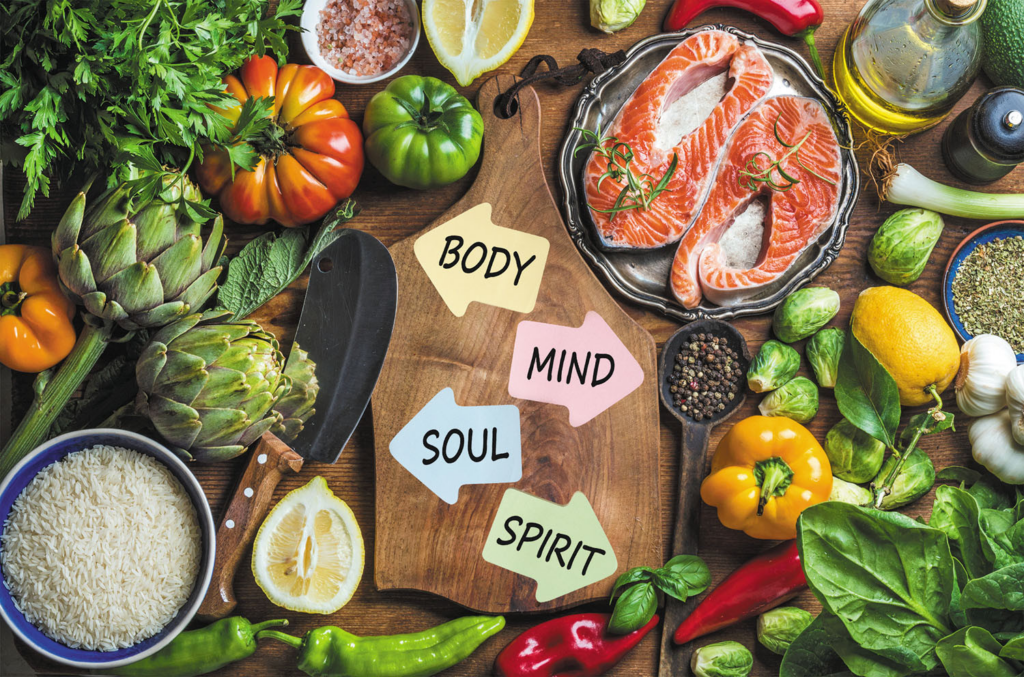In today’s fast-paced world, we often overlook the profound impact our food choices can have on our emotional well-being. It’s not just about satisfying our taste buds; what we eat can significantly influence our mood. This article will delve into the surprising connection between food and mood, shedding light on how our diet can affect our emotional state.
Introduction
Have you ever noticed how a hearty meal can put you in a good mood, or conversely, how a sugar-laden snack can lead to irritability? The connection between food and mood is not a myth; it’s a well-established fact supported by science. In this article, we will explore this fascinating relationship and understand how our food choices can impact our emotional well-being.

The Gut-Brain Connection
The Role of Gut Microbes
One of the key players in the food-mood connection is our gut. The gut is often referred to as our “second brain” because it houses millions of microbes that influence various bodily functions, including mood regulation. Research suggests that a healthy gut microbiome is linked to better emotional health.
Serotonin Production
Serotonin, often referred to as the “feel-good” neurotransmitter, is heavily influenced by our diet. Certain foods, rich in tryptophan (an amino acid), can boost serotonin production. This, in turn, can elevate our mood and promote a sense of well-being.
Foods that Boost Mood
Omega-3 Fatty Acids
Omega-3 fatty acids, found in fatty fish like salmon, walnuts, and flaxseeds, have been shown to have mood-enhancing properties. They reduce inflammation in the brain and support overall mental health.
Dark Chocolate
Dark chocolate contains compounds that trigger the release of endorphins, those natural mood-lifters. But remember, moderation is key.
Berries
Berries, packed with antioxidants, can help combat oxidative stress and inflammation, which are linked to mood disorders.
Probiotics
Probiotic-rich foods like yogurt and kimchi can positively impact gut health, which in turn can influence mood regulation.
Foods that Affect Mood Negatively
Sugar and Mood Swings
Consuming excessive sugar can lead to blood sugar spikes and crashes, resulting in mood swings and irritability.
Highly Processed Foods
Processed foods, high in unhealthy fats and additives, can have a detrimental effect on mental health.
Caffeine and Anxiety
While a cup of coffee can boost alertness, excessive caffeine intake can lead to anxiety and restlessness.
Balancing Your Diet for Better Mood
Maintaining a balanced diet, rich in fruits, vegetables, lean proteins, and whole grains, is essential for stable mood regulation. Additionally, paying attention to meal timing can help stabilize blood sugar levels and prevent mood swings.
Hydration and Mood
Dehydration can negatively affect your mood and cognitive function. It’s crucial to stay adequately hydrated throughout the day.
The Role of Mindful Eating
Practicing mindful eating can help you develop a healthier relationship with food. Paying attention to what you eat and savoring each bite can enhance your overall well-being.
Exercise and Its Mood-Boosting Effects
Regular physical activity releases endorphins, which can significantly improve mood and reduce stress.
Sleep and Mood Regulation
A good night’s sleep is essential for emotional well-being. Poor sleep patterns can lead to irritability and mood disorders.
Stress and Emotional Eating
Many people turn to comfort foods when stressed. Understanding this coping mechanism and finding healthier alternatives is crucial for emotional health.
Food and Mood in Different Cultures
Food and mood are intertwined in various cultures, with unique dietary patterns influencing emotional states.
Children’s Diet and Mood
Children’s diets play a critical role in their emotional development. Proper nutrition is vital for their mental well-being.
The Elderly and Nutrition
In the elderly population, nutritional needs change, and a balanced diet becomes even more crucial to maintain a positive outlook on life.
Seeking Professional Help
If you suspect that your diet is significantly affecting your mood, consider seeking the advice of a healthcare professional or a registered dietitian.
Conclusion
The connection between food and mood is undeniable. Your diet can either uplift your spirits or send you on an emotional rollercoaster. By making mindful food choices, staying hydrated, and incorporating exercise and sleep into your routine, you can take control of your emotional well-being. Remember, a healthy diet is not just about nourishing your body; it’s also about feeding your soul with positivity and happiness.


